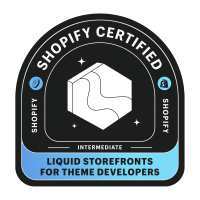
Playing Games to Wake up From a Night Owl’s Perspective
I’m not a morning person. Actually, I’m not even a person in the morning. “Zombie” would be the most appropriate term. Everything I hear just goes straight through my ears. I can’t make a normal sentence; just keep mixing up similar words. I walk slowly and drop things. Navigation, maps? I don’t understand it at all in the morning (and I really do at any other time). But in the morning, I literally can’t tell left from right.

Could coffee help? Not really, I can’t stand coffee in the morning; it makes me feel even worse like I’m sick. It’s not the coffee, it works well always when I’m sleepy after lunch. It’s just, I can’t really stand anything in the morning – or anyone. I can be really grumpy, I admit.
You might wonder how I function professionally. Well, that’s the beauty of flexible working hours (perks of being a “computer geek”). Most of the time I just sleep as long as I want, go to work, go back home for dinner, and after dinner and other free time evening activities, finish what’s left. I’m just more productive at nights. And most of the time that’s fine.

However, the rest of mankind has developed some “standards”, by which it’s normal to work in the morning, and all working hours are somehow synchronized. So, sometimes I miss opening hours of my favorite stores or have trouble syncing free time with my friends. And I usually skip the gym because it isn’t open all night – totally valid excuse for not working out. So, sometimes I just have to use “hacks” on my brain so it could wake up early. And I mean, to really wake up, not just to wake the grumpy, zombie part of me.
I figured out two approaches that work well:
-
reading emails/chats/news
-
and playing games.
And I also noticed that a lot of my friends use the same tricks. Even the ones who are early birds have developed similar morning habits.
So, as an engineer and a person who likes to analyze things, I just had to find some logical explanation for this. And I am going to share it with you, and hope that it will start an interesting discussion.
Some of the big phenomena of today’s society are achievement hoarding and FOMO (fear of missing out). And I’m not even going to pretend that I don’t have symptoms of both.

FOMO
After my alarm rings, I turn it off and just want to throw that noise-making phone as far from me as possible. But then I just glimpse the screen and see little red dots on my home screen – notifications. And something weird happens – I just have to read them all, despite my morning troubles. If they are fun, they engage me to scroll, reply, like, chat or tweet until I am completely awake. But they are not so interesting every morning. Sometimes all I get is just spam that puts me back to sleep. So taking advantage of FOMO could be effective but it is not completely reliable.
IN-APP HOARDING
Collecting stars, badges, trophies, etc. can be a great motivation for playing games, even in the morning. It can hook you up pretty easily. There are two mobile games that I like to play the most.
The first one is Despicable me – Minion rush. Besides featuring adorable Minions, who make their funny noises, it offers you to collect apples, bananas, points, and to trade it for different minion costumes, that allow you to collect even more bananas and points – infinite hoarding loop. But, jokes aside, my opinion is that this game is very well designed and that it should be used as a textbook example of how to engage users. It offers new content all the time, and there are often new, special, limited time missions that just force you to play now instead of later.

The second one is Criminal case. Here you play hidden object (crime) scenes or some type of puzzle in order to collect stars. You need stars to analyze clues and interrogate witnesses, so you could solve the crime. Only after you solve one crime, you can proceed to solve another one. By solving crimes you earn coins so you can buy fancy outfits for your avatar and gain experience points so you can be promoted. I am already a sergeant. It is another good example of an engaging app and it is great for everyone who grew up watching CSI every night, wanting to become Horatio Caine.

The trick with these games is that you can only play a couple of times until you spend your energy. You can pay for additional energy, or you have to wait some time until it refills. Since it wouldn’t be the smartest idea to spend money every single day on games, most of the time I’m relying on the free energy. This is what I do:
-
I play once when I wake up and by the evening I have the full energy bar.
-
I play the second time before I go to bed, so the energy bar has the entire night to get refilled.
If I miss playing in the morning, it would mean that I only get to play once that day. This increases the time until my next achievement – which is not good. So, I am really motivated to play in the morning.
I once read this cool article about video games, addiction and reward systems and I really liked the ideas in it. So, I tried to apply them to myself in a way. In order not to feel guilty for wasting time playing games, I allow myself to play them for a short period of time, twice a day, as a reward for waking up early. That way I know I earned it and I use them to develop better habits.

I get the similar effect with our (Byteout‘s) favorite project Early Game Alarm. As the alarm rings bright, shiny circles start flying across the screen, inviting me to play and offering me a possibility to defeat my yesterday self. It wakes up my competitive side before the zombie one. I think it would be even better once we add an option to compete with friends, allowing me to defeat my half-awake sister. Or you know what else would be great? If I could at the same time collect early bird trophies as a reward for waking up and beat my friends in the number of collected trophies! 😀
The possibilities are endless but the concept is the same and I think it is the key to helping heavy sleepers to embrace mornings easier. What do you think? Any advice?

